After two weeks of checking that everything was working as it should and performing all of the necessary maintenance through our CPT dealer, J2 Performance, it was time to get started!
First off we installed an aftermarket downpipe, as keeping backpressure, post-turbo down helps with gasflow, Exhaust Gas Temperature (EGT) as well as spool-up time, and importantly, sound.
Downpipe time!
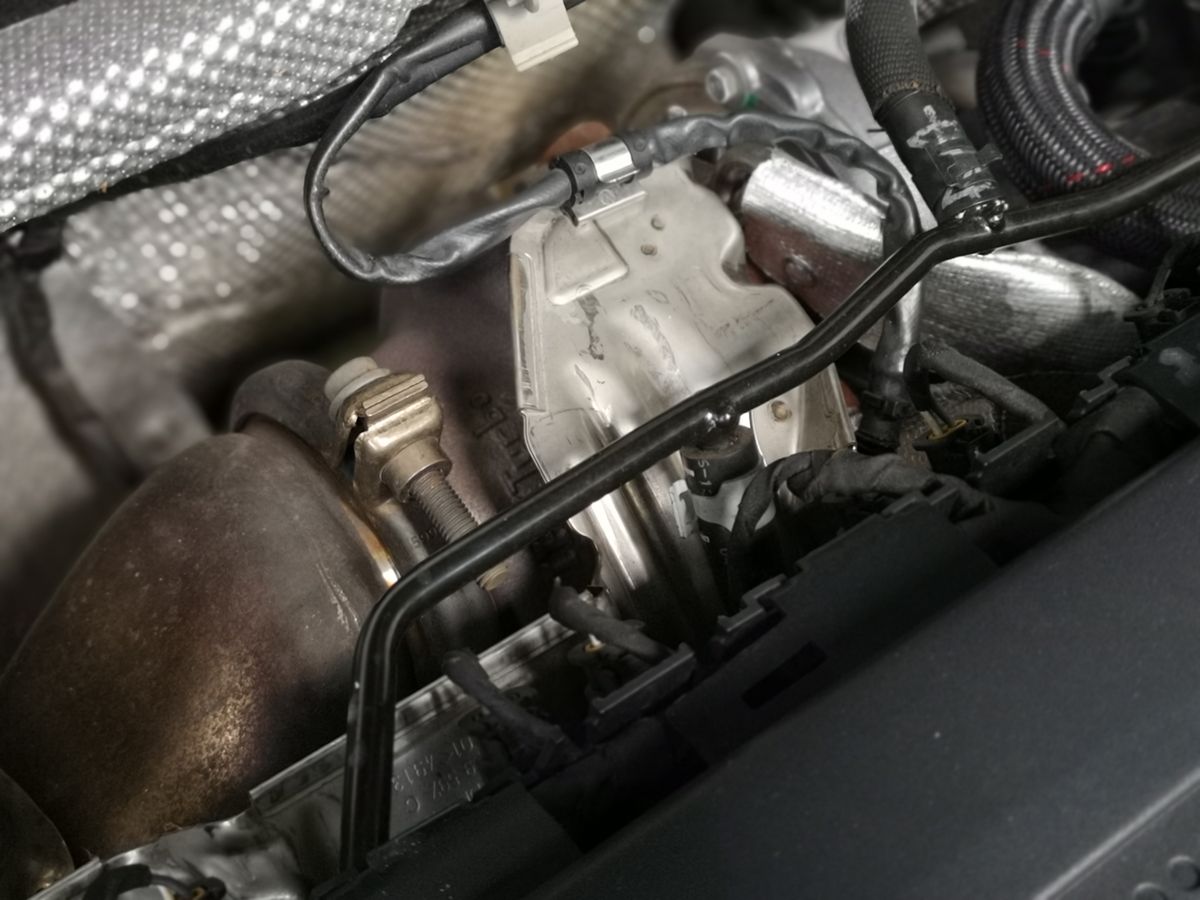
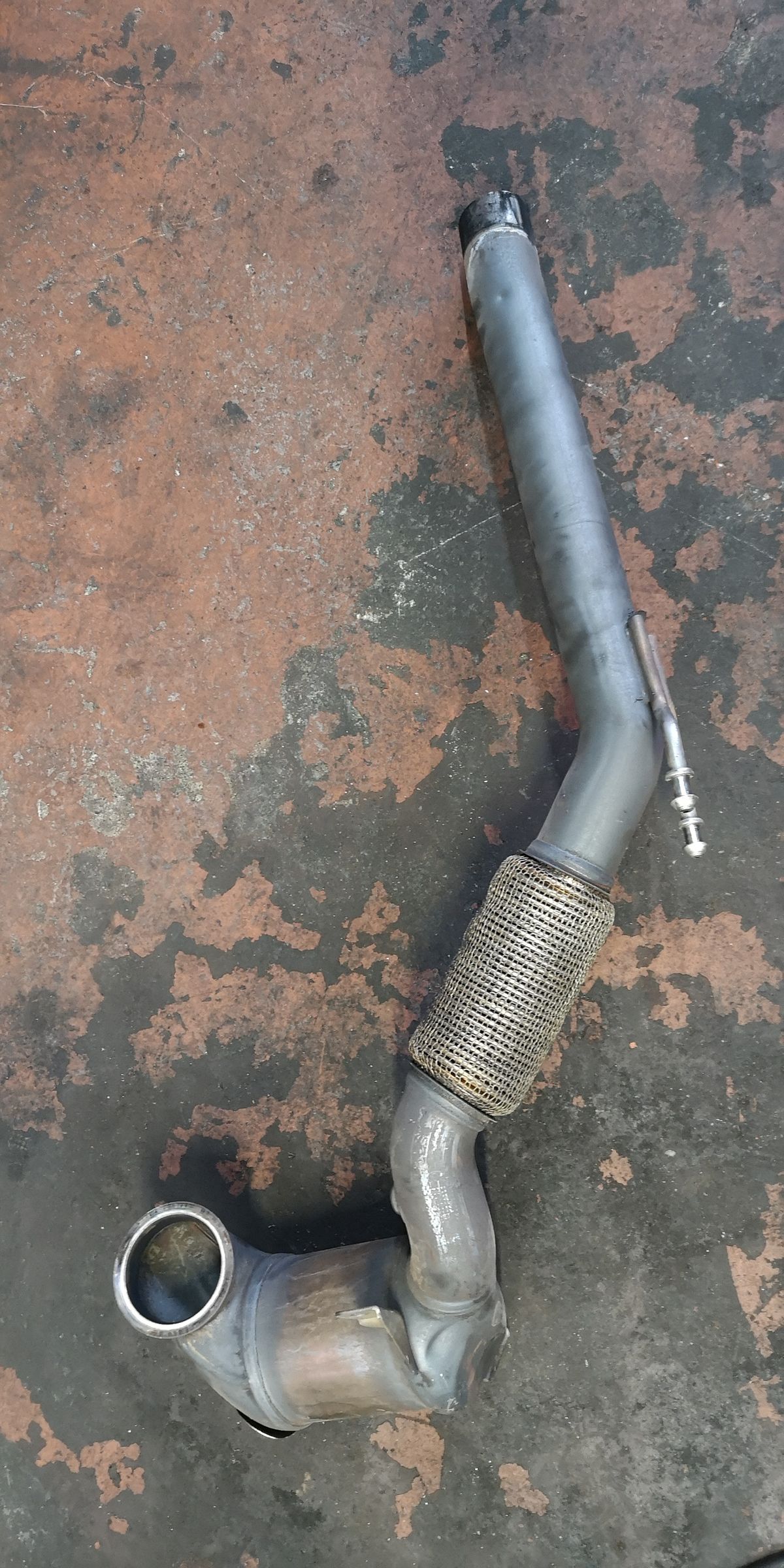
New downpipe in (this particular downpipe has an additional lambda (oxygen) sensor bung as it was previously used on a car that had a separate wideband sensor mounted in the car. Some rust buildup on the CHRA (Centre Housing Rotating Assembly), the centre of the turbo, is perfectly normal after 5 years of multiple heat cycles per day.
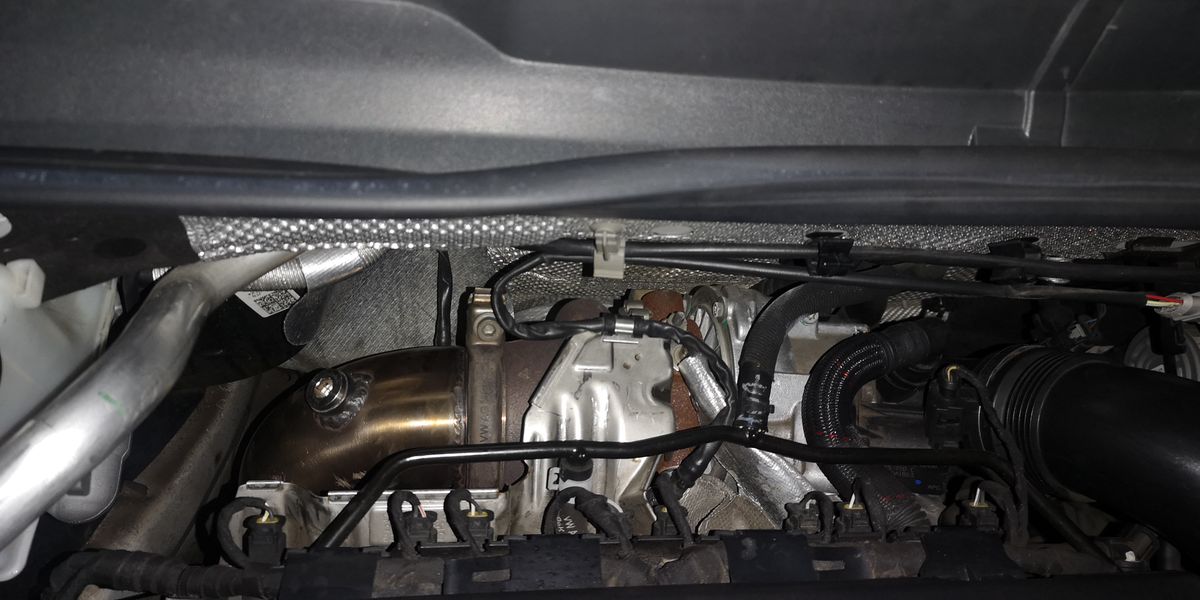
Colder sparkplugs:
Using a colder spark-plug when tuning a car allows for more of the combustion heat to be drawn into the head, where it is removed by the coolant, this is important for thermal control within the combustion chamber and maintaining regular combustion. We always recommend using a high-quality spark-plug when tuning to ensure longevity and optimum performance. The spark-plugs we used, are NGK Racing-8 MQB spark-plugs, available through the link at the bottom of the page
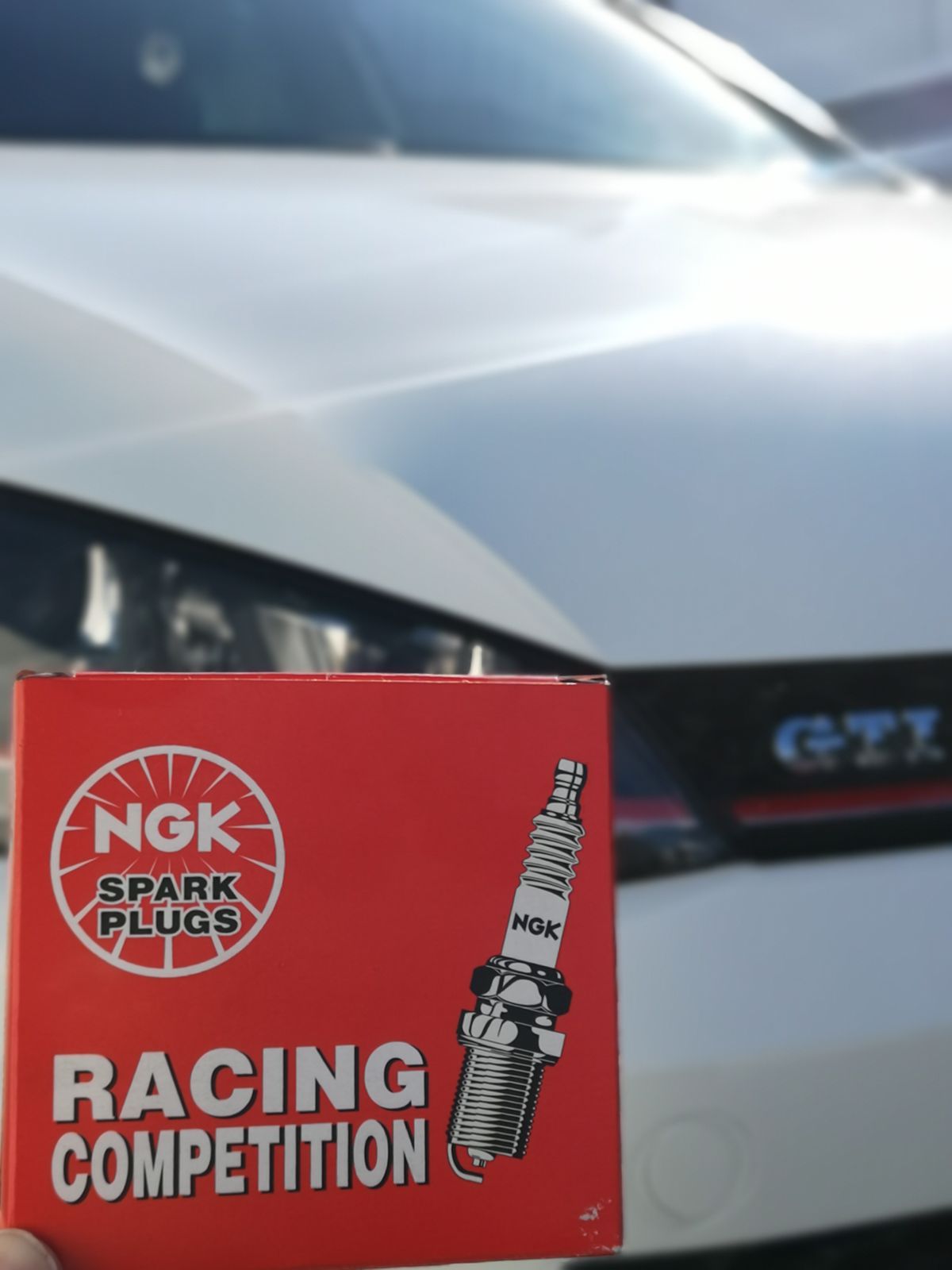
And now onto the good stuff...
Building a custom ECU tune:
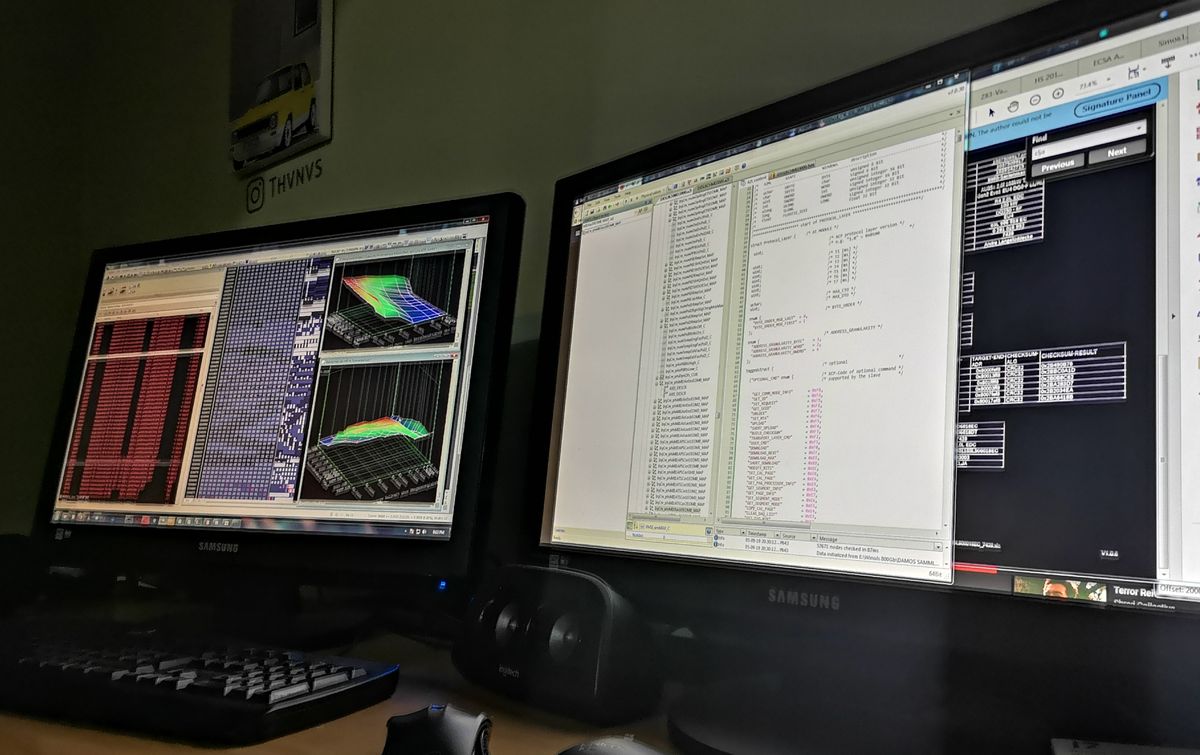
The 2014 Mk7 GTi uses a SIMOS18 Engine Control Unit, that is highly tunable and capable. For our own custom Stage 1 map we read the file from the ECU and get to work. The first thing we do is address some of our
Concerns with the stock ECU mapping
- Running too lean under load/boost, the stock mapping is designed for optimum fuel consumption, and will run a stoichiometric 14.7 AFR (Air/Fuel ratio) for as long as possible, until the exhaust gas temperature starts to rise, and it begins to enrich. While that may be acceptable for certain conditions, it does not work at all once the boost is increased. We adjust the map to enrich both with increased load, as well as in response to exhaust gas temperature and duration that load has been applied. This ensures stable combustion and consistent power.
- Running too high coolant temperature targets, hot motor temps and thin oil provide the least resistance to flow, and the most economical gains, however running high temperature coolant and oil has the opposite effect for stable combustion under high load. We immediately drop the coolant temperature targets in the head, and an immediate 10-15 degree reduction in oil temperature is also realised. As the same coolant cools the DSG, the cooling effect is realised in the transmission too.
- It's boring, conservative mapping is part of the business model of both ensuring overall reliability,as well not competing within the brand, as such the GTI is positioned well below the R in terms of performance, we just can't have that.
Our custom Stage 1/2 ECU tune includes the following:
- Increased boost levels (Duh, how else will we see the kind of gains expected with a remap :))
- Recalibrated ignition timing tables for each (VVT/VVL/Manifold flap setpoint) to cater for the higher boost and load on the motor
- Optimised VVTi settings (Intake + Exhaust), controlling the cams allows for quick spool and a wide torque band
- Optimised Fuelling (as mentioned earlier)
- Decreased Coolant Temperature set points for lower oil and DSG temps
- Optional Exhaust Crackles, for sound some engineering
All of our mapping is done in-house using WINols to edit the hex/flash-data in line with where we want the parameters to be set for the hardware on the vehicle.
Building a custom TCU Tune:
The 2014 Mk7 GTI is equipped with a DQ250-MQB 6-Speed, wet-clutch gearbox, it applies hydraulic pressure to a series of clutch plates to transmit power from the engine to the shafts. The pressure is controlled by the TCU in response to metered torque from the motor, and while the stock TCU software is capable of withstanding a decent amount of torque, certainly what the Stage 1 tune puts out, we always recommend remapping the TCU when remapping the ECU.
The DSG relies on macro and micro-slip controllers to control slippage and without remapping to adjust the preconditioning of the clutch pressure, more and more reliance is placed on the slip controllers to prevent clutch slip and wear. For our Mk7 GTI we went with out custom Stage 2 DSG remap. Our Stage 1 DSG remap would have sufficed, however with the way we drive our own cars, the more clutch pressure conditioning the better!
Our custom Stage 2 DSG/TCU tune includes the following:
- Increased torque limiters ,the last thing you want is the TCU commanding the ECU to cut torque, ruining the fun
- Increased clutch pressure preconditioning (higher feed-forward prevents slip instead of reacting to it)
- Moderately decreased shift times, the stock shift times are already quick, quicker than most realise, the speed at which the needle jumps is far slower than the actual shift, and so not much adjustment is needed in the areas where shifts are already, however quicker shifts in lower areas help with responsiveness.
- Optimised shift points in D-Mode, D-Mode is notoriously lazy, changing the shift points allows more torque to be felt before the gears change
- Optimised shift points in S-Mode, S-Mode affectionately known as lunatic mode gets tamed a bit because you don't always want to rev to the limiter when you want to boost
- Decreased paddle-shifter delay, Increased responsiveness is always good
- Pedal-dependent launch-control, the RPM setpoint will vary with the pedal position for that perfect launch
- Removal of launch-delay, makes the launching process more predictable.
Let's flash!
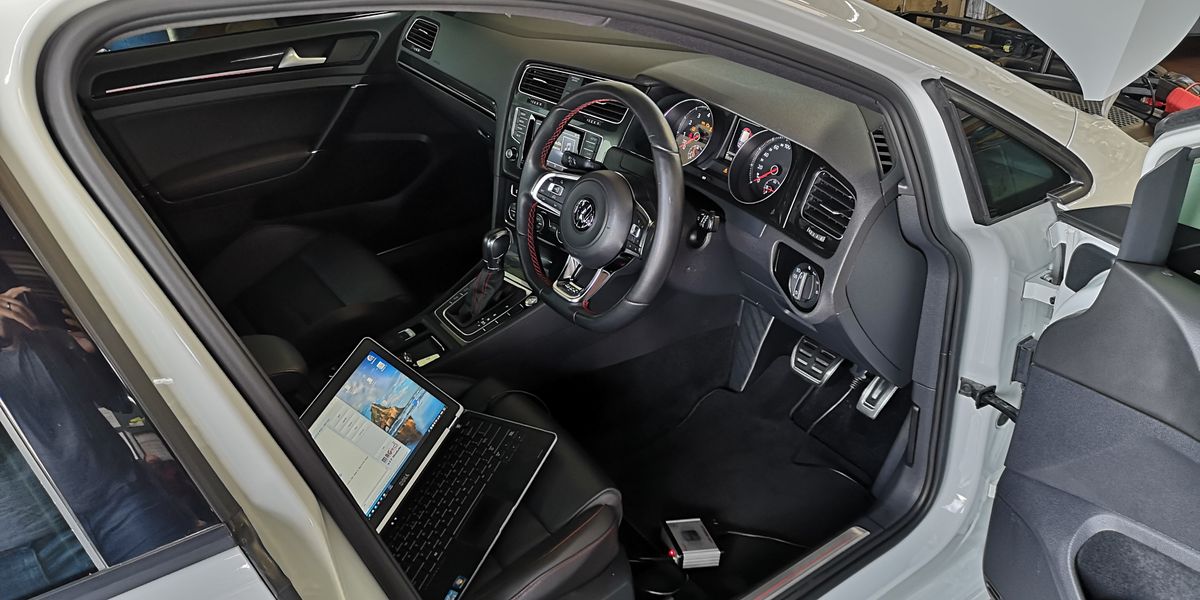
Our tunes are then flashed onto the ECU and TCU using Magicmotorsport Flashing Tools, in this case, the MagPro2 X17, but more recently the MMS FLEX, done by our dealer J2 Performance, who is also a dealer for the MMS Flashtools (check them out, below)!
Data-logging and map revision
The tune is then data-logged and tweaked to the specific setup to make sure that the tune is suitable for the hardware, and we're on our way! At this point we weren't intentionally documenting the process and so unfortunately we didn't save any of the dyno data or driving videos, we'll document the builds more in future, however what can be expected from this setup is:
Power gains: 50 - 60 kW
Torque: 100 - 150 Nm
This is from a basic setup of:
Down-pipe
Spark-plugs
Custom Tune
All other parts are purely standard! More hardware modifications allow us to tune for more power, as simple as that!
It was kept this way for around 6 months, with some small mods along the way, being boosted daily and taken on some longer trips, the response and torque is fantastic.
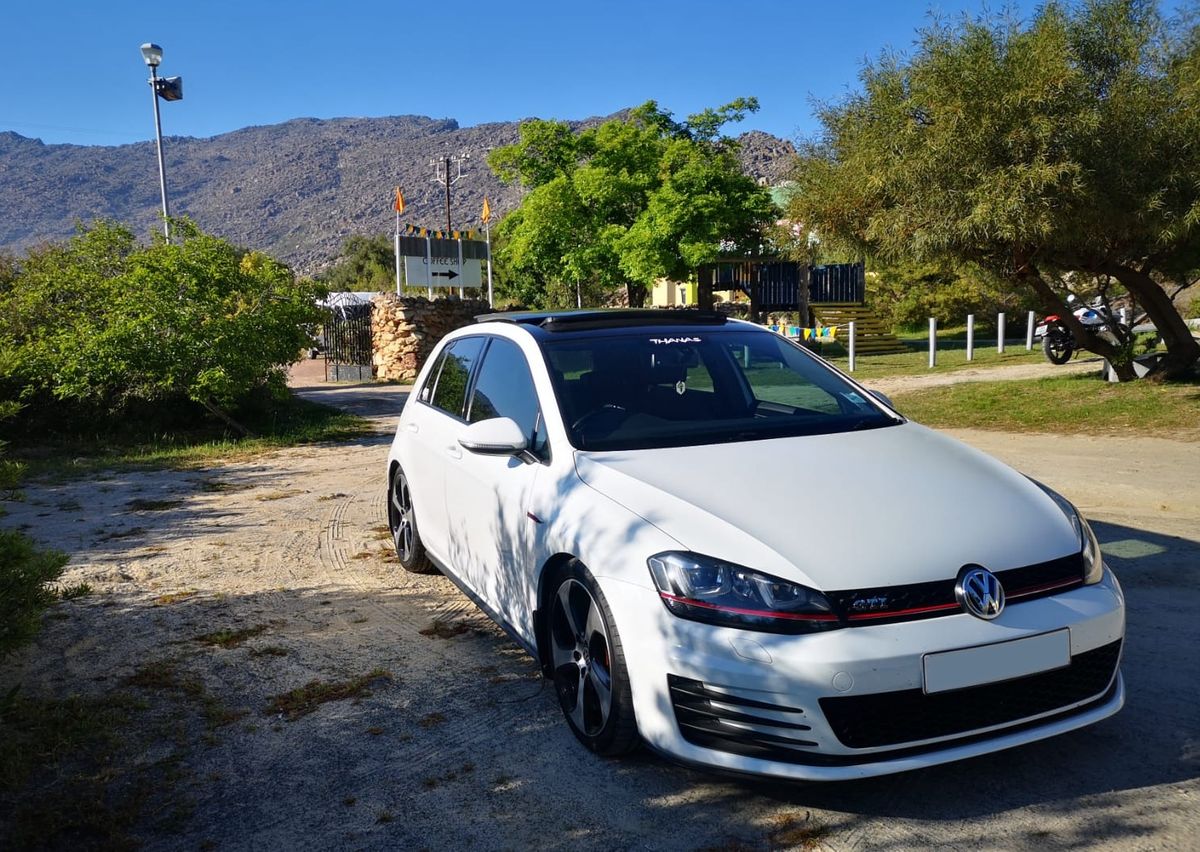
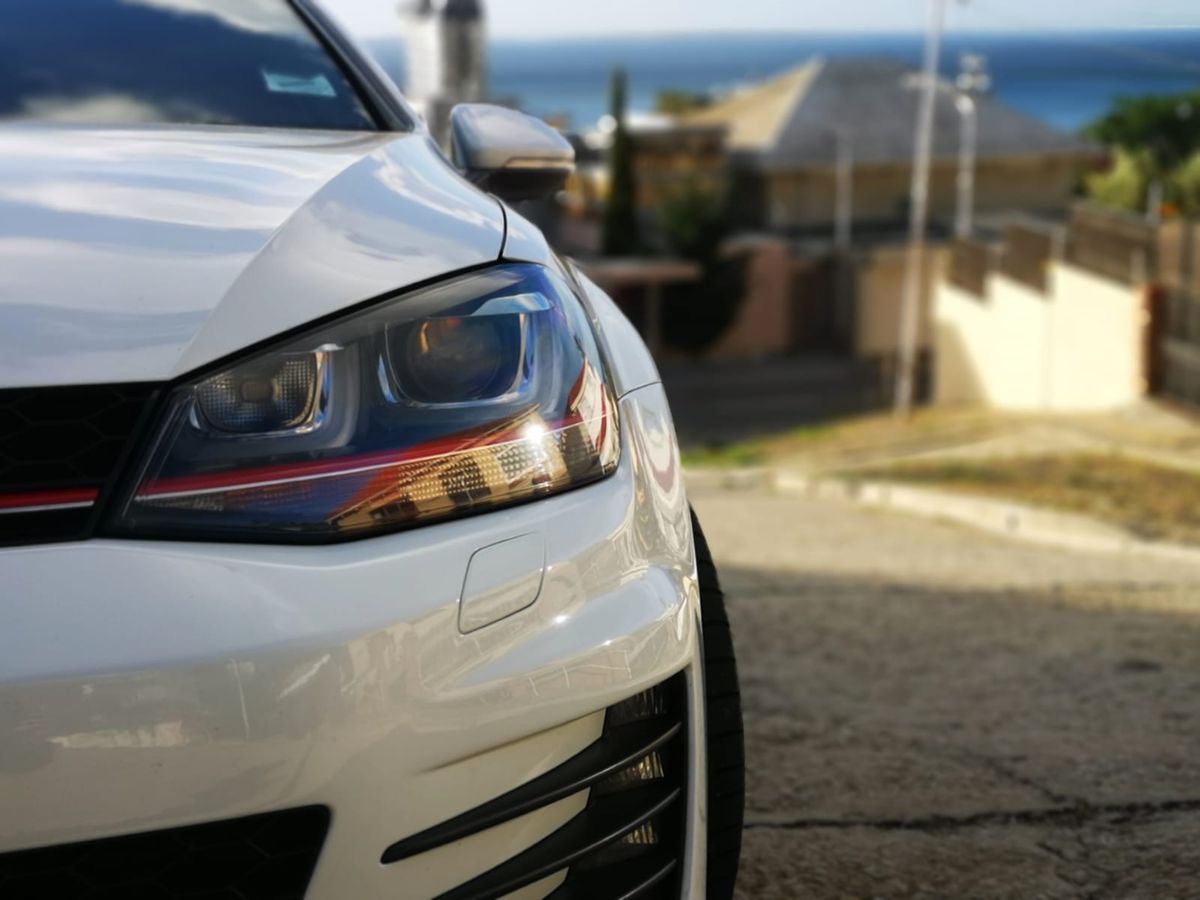

As with everything, boost is good but:
MORE BOOST IS BETTER
Stage 3 up next, stay tuned!